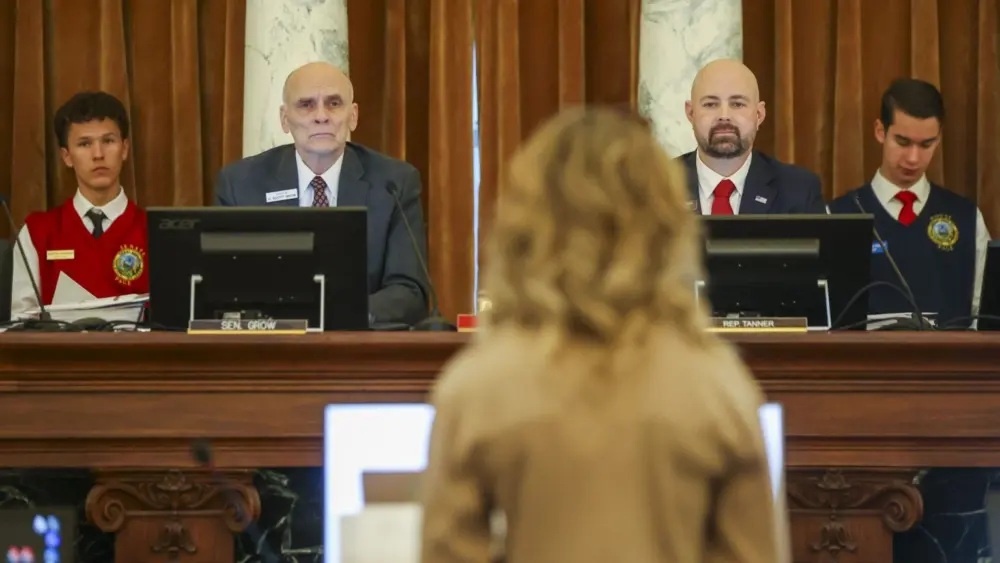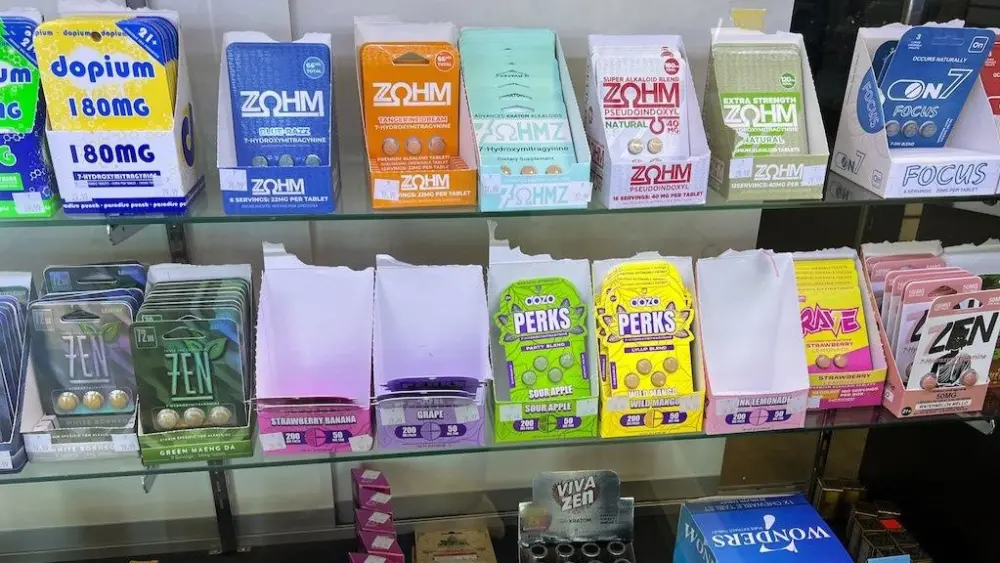BOISE, ID – Right now, Bob McMichael and his wife only pay $50 a month for their health insurance premium.
That’s deeply subsidized by tax credits Congress created in 2021.
But a couple weeks ago, they got a letter from their health insurance company that said their premiums would be hiking. It’d be $400 a month with the same enhanced tax credit, or more than $2,200 without.
The full price is almost how much the retired school teacher, who lives in Council, Idaho, and his wife earn each month.
“If we spent that much on health care — which we won’t be able to do — we wouldn’t be able to buy groceries, or gas, or pay our utility bills, or anything else,” McMichael told the Idaho Capital Sun in an interview.
Unless Congress extends them, the enhanced premium tax credits that let people buy cheaper health insurance on exchanges will expire at the end of this year. Without those credits, 25,000 Idahoans are likely to cancel their insurance policies — as average premiums are expected to double, said Pat Kelly, executive director of Your Health Idaho.
The federal government shutdown this week came after weeks of partisan disagreement over this health policy issue.
Republicans — who control the White House and both chambers of Congress, but need bipartisan support for most legislation — have blamed Democrats for the government shutdown. Congressional Democrats insisted on extending the health insurance tax credits and repealing Medicaid cuts as part of the stopgap funding bill.
But the vast majority of Americans — over 78% — say Congress should renew the enhanced credits, according to a poll by health policy research group KFF released Friday. Even most Republicans, 59%, say they want the credits extended.
If the credits end, the rate of uninsured Idahoans will “skyrocket,” said Idaho Supports Medicaid Policy Associate Ivy Walker.
That’ll likely trigger a ripple effect that strains the entire health care system, she said, forcing hospitals to take on more uncompensated care that private insurance companies will offset — by raising premiums for people still insured.
“This is all going to feed into a very vicious cycle. And families are going to essentially have to choose between getting health care or feeding their families or paying rent,” Walker said.
How the enhanced premium tax credits for health insurance work
The enhanced premium tax credits ensure people don’t pay more than 8.5% of their income on health insurance for benchmark plans.
The credits only apply for health insurance people buy through the federal government’s marketplace created by the Affordable Care Act, and state-based insurance exchanges, like Idaho’s Your Health Idaho.
Exchanges are a common place for people to buy private health insurance when their jobs don’t offer any, their employer’s policies are unaffordable, or people don’t qualify for public assistance like Medicaid or Medicare.
In Idaho, the enhanced credits reduced average monthly premiums by more than $400 — knocking down $636 payments down to $179, Walker said.
Smaller credits already existed for insurance through exchanges. The enhanced credits offer two key new types of help, according to KFF: Boosting aid for people already eligible, and expanding eligibility to people who earn more than 400% of the federal poverty level, which is $106,600 for a family of three.
After the credits were created, more than twice as many people got insurance through the federal marketplace, according to KFF. Since 2022, enrollment in Idaho’s exchange is up by 84%, Kelly said.
In 2021, Congress created the enhanced tax credits discount in the American Rescue Plan Act. Then Congress extended the enhanced credits through the Inflation Reduction Act in 2022. Former President Joe Biden signed both bills into law.
Extending the credits permanently would cost $350 billion over the next decade, and lead to 3.8 million more people having health insurance, the Congressional Budget Office estimated in September.
Why was this part of the federal government shutdown?
As the federal government was about to run out of money set aside by Congress at the end of last month, GOP lawmakers crafted their own temporary funding bill to keep the government running before addressing the next year’s full budget.
The federal government has partially shut down. What does that mean for Idaho?
But Democratic lawmakers largely voted against Republicans’ bill, calling for extending the enhanced tax credits and repealing Medicaid cuts made through the “One Big Beautiful Bill Act.”
In mid-September, U.S. House Speaker Mike Johnson said he viewed negotiations over the enhanced tax credits as “a December policy issue, not a September funding issue,” States Newsroom reported. But open enrollment for the federal marketplace — when people can pick or change health insurance plans — starts Nov. 1 and ends Dec. 15.
Walker said waiting until December to take up extending the credits “would be far too late.”
The policy positions of Idaho’s congressional delegation, made up of four Republicans, are not immediately clear.
U.S. Rep. Mike Simpson does not support extending the enhanced tax credits, a spokesperson told the Idaho Capital Sun.
“This has nothing to do with a September 30th funding measure — it’s purely a distraction from the Democrats,” Simpson’s spokesperson, Lexi Hamel, said in a statement.
Amanda Critchfield, a spokesperson for U.S. Sen. Mike Crapo, who chairs the Senate Finance Committee, said “Crapo welcomes conversations with his colleagues on both sides of the aisle about policies to lower health care costs for all Americans once the federal government re-opens.”
In a statement, U.S. Sen. Jim Risch criticized Democrats.
“Democrats, not Republicans, set the expiration date on the Biden administration’s enhanced Obamacare credits,” Risch told the Sun in a statement. “These are temporary, COVID-era subsidies. If Democrats wanted to extend them beyond the pandemic, turning them into a defacto entitlement program, they had every opportunity to do so during the Biden administration. They did not. Now, they are using it as a ploy to shut down the government and extort nearly $1.5 trillion in federal spending increases.”
U.S. Rep. Russ Fulcher could not be immediately reached for comment.
Idaho Democratic Party Chairwoman Lauren Necochea said Democrats pushed for the health care policies as part of the stopgap funding bill “because they know how dire this is going to be for regular American families.”
“Huge health care price hikes are being shoved down the throats of the American people, and Democrats are saying, ‘We’re not going to be part of this. We’re going to fight this,’” she told the Sun in an interview. “And this is the only lever Democrats have to try to stop those huge health coverage price hikes before they happen.”
In Idaho, Walker said the enhanced health insurance credits potentially expiring would pile onto a range of Medicaid cuts — to doctor pay rates, reforms from a state law this year, and federal cuts from the “One Big Beautiful Bill Act” — that are priming the state for a health care crisis.
“Idahoans will have such a hard time finding access to health care all over the state. And it won’t matter whether you have insurance or not. It’s going to affect everyone,” she said.
Open enrollment for health insurance is approaching in Idaho
Open enrollment for Idaho’s insurance exchange, Your Health Idaho, starts Oct. 15 and ends Dec. 15.
Kelly, who leads the exchange, stressed the importance of working with an insurance broker or agent on plans for next year.
“It is more important than ever for 2026 that you work with those professionals. There’s about 1,200 agents or brokers all across the state,” he said. “… They are the experts when it comes to health insurance. So, they can help you find a plan that still meets your needs even with these increases.”
McMichael, 63, retired three years ago. After retirement, he said he and his wife were on Medicaid expansion — until she tapped into Social Security early, and they earned too much to qualify. Then they got on an insurance plan through the exchange.
McMichael said he’ll have to wait until open enrollment to see if there’s other insurance that’s affordable.
“Like the 10s of millions of other people in our situation … we will not have health care. And if one of us gets really sick, then the options are pretty bleak,” he said.
He said he and his wife are pretty healthy; they aren’t on routine prescriptions, and don’t have serious illnesses.
A few years ago, he had back surgery. Issues have popped up again, but he can’t afford to fix them.
“But I just kind of live with pain. Because trying to get a treatment plan and all the other hoops you have to jump through, like an MRI and physical therapy, is just — even with the health plan that we have, the out of pocket costs are too much,” he said.
Idaho Capital Sun is part of States Newsroom, a nonprofit news network supported by grants and a coalition of donors as a 501c(3) public charity. Idaho Capital Sun maintains editorial independence. Contact Editor Christina Lords for questions: info@idahocapitalsun.com.





